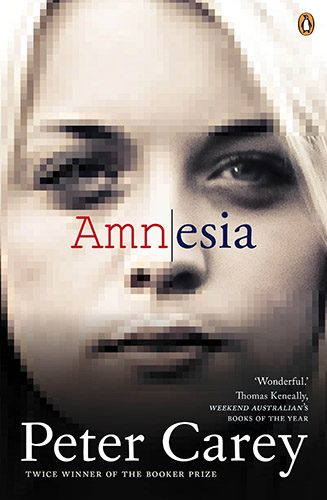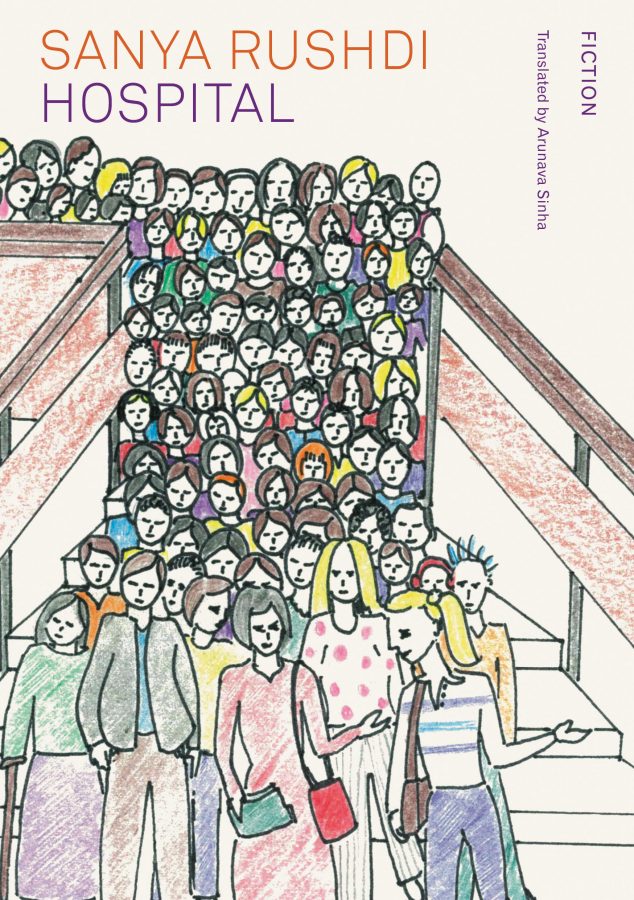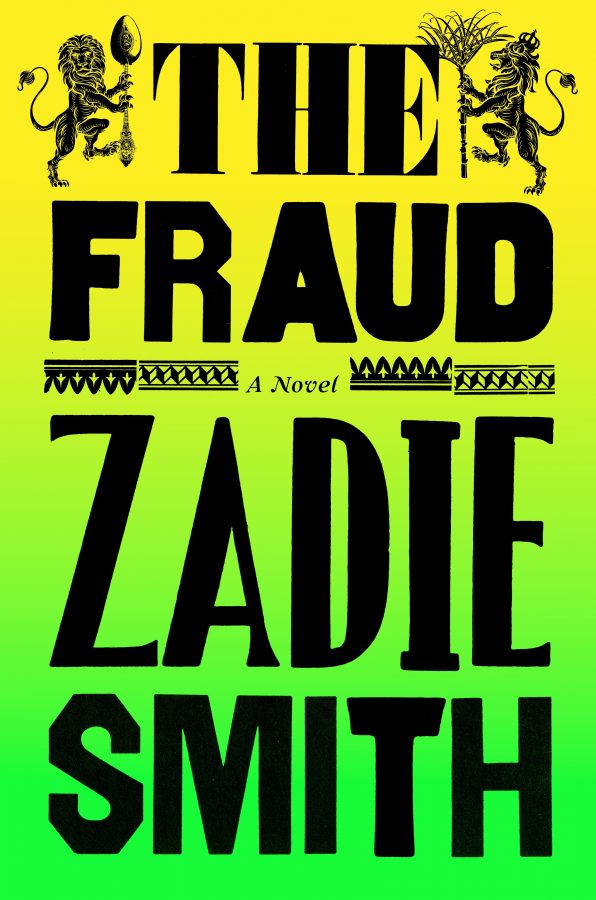Amnesia is a less serious novel than I thought it would be. This is, for the most part, a good thing. There are long moments in which the novel sinks its reader into the soft pillow of a well-told story, the guilty pleasure of being in the hands of a practised manipulator of readerly emotions, as Carey deals out his cards of sentiment, guilt, betrayal and compromise. Much of Amnesia, however, works in another, slightly less comfortable register. Like many of Carey’s novels, it never stops reminding us of the unsteadiness of the narrative ground under our feet: there is, as usual, more than one storyteller lurking in the wings, and the relationship between historical fact and narrated tale is, as usual, hazy. The stories told and questioned in this novel are about individuals, their families and their lives. They also raise questions about politics, but these questions are not as ideological as the cover blurb would like us to believe. I am not sure that Amnesia does speak ‘urgently about our present’; it speaks more interestingly about what Emily Apter describes as ‘politics “small p”’, its daily machinations, and its daily victims.
This is not the first time that Carey has written about politics. He has long been interested in the political implications of the stories we tell. And I am not the first to point out that Carey’s engagement with American imperialism goes back to The Unusual Life of Tristan Smith (1994), and beyond that to his early short fiction. In Amnesia, this theme is dealt with in a curious fashion, filtered through the paranoid and stalwart leftism of the novel’s not-very-attractive protagonist, Felix Moore. Where True History of the Kelly Gang (2000) was concerned with how individual lives are shaped by larger political narratives, Amnesia is much more explicitly about politics, and contemporary politics at that. Carey has in the past been accused of playing it safe: someone once suggested, not entirely charitably, that he approached history ‘like a poker machine – hit the right icons and the money pours out’. But in tackling a contemporary political theme and writing about technology in the recent past, he takes a risk that I always admire a writer taking. This is the risk of being up-to-date, which comes with the concomitant and often speedily-realised risk of becoming out of date.
While Amnesia reaches back into the past, the novel centres upon a very contemporary political act: the release of a computer program which opens the gates of Australia’s prisons, apparently to free asylum seekers from incarceration. Because of American control of the Australian prison system, the ‘Angel worm’ is also an attack on US prisons and, by extension, America itself. Felix Moore, a shambolic old-left journalist who has just decisively lost his class war against Packer and Murdoch, is hired to tell the story of the hacker, ‘Gaby from Coburg’. ‘Australianise her,’ demands his patron, Woody Townes.
The political beliefs motivating Gaby’s cyber-attack on America and its prisons remain obscure for much of the novel, and deliberately so. Felix tries and fails to make Gaby into a noble warrior against American imperialism, as he is fixated on American influence in Australian politics, especially in relation to the dismissal of Gough Whitlam in 1975. Gaby does emerge as obscurely heroic, but her heroism has less to do with national issues and more to do with globalised environmental disaster.
In the course of Felix’s investigation, as we are narrated unsteadily through the worlds of text-based computer games, the ‘dark web’, phishing, and so on, it becomes clear that he does not know what he is talking about. ‘If this was a story about hackers,’ he writes, ‘I was laughably ill-equipped.’ Here, as throughout the novel, Moore acts as a more-or-less effective screen for a range of attitudes that would be difficult to get away with in an omniscient mode of narration. I am tempted to substitute ‘Carey’ for ‘Moore’ in the summary that follows: Moore is an assured narrator when it comes to depicting the experiences of people of his own generation and the generation before. His personal history, which intersects with that of Gaby’s parents, is deftly told. So is the story he uncovers and recounts of the conception and childhood of Gaby’s mother, Celine Bailleux, which involves the ‘brownout strangler’ and the 1942 Battle of Brisbane, the bodgie wars, and more besides. When it comes to Gaby’s youth – which coincides with that of my own generation – Moore is less assured. I squirmed through detailed but laboured descriptions of her encounters with computer games and hacking, her affair with the androgynous Frederic Matovic. Whether the failure here is Moore’s or Carey’s, there is a absence of empathy or imagination in these sections that is evident purely by comparison with the rest of the novel.
Perhaps part of the difficulty is that Carey has always worked best with regret and nostalgia. There is no sense, in the telling of Gaby’s story, of the possibility that these experiences of childhood and adolescence will be remembered with the nostalgia that suffuses the account of Moore’s days at Monash University back when it was surrounded by cow-paddocks. Moore fails to invest Gaby’s story with the depth, the roundness, the possibility of a real interior life that is evident when he tells her mother’s story and his own. Perhaps this is the point – Moore really only wants to tell his own story, and the tapes given to him by Gaby and Celine Bailleux do not give him the kind of story he wants to tell. He is being paid to be a sympathy-generator and he fails – whether by active resistance or something else it is hard to tell.
Carey is adept at narratorial subterfuge, at prompting us to question whose story we really hold in our hands. I am well aware of the risks involved in conflating the author with the narrator when reading Amnesia. What I can say, however, is that Felix Moore, as character and narrator, continues a mode of writing about women in Carey’s work that often makes me uncomfortable. This is a version of the Angel in the House, a sentimentalising of the lover-as-saviour that is somehow magnified by the ‘toughness’ and the idiosyncrasies of these women. Felix may appreciate that his wife ‘eschews “sexy” legs and fuck-me heels’, but like Carey he can’t help but see women primarily in relation to sex, and their capacity to provide refuge from the disasters in the world outside the home. Gaby’s reinvention as the author of the ‘Angel worm’, and her own telling of her story, pushes back against this, and against the marginalisation of women in the online world, but this is contained by the framing narrative of Felix’s relationships with his wife, Claire, and Gaby’s mother, Celine.
Giving Carey the benefit of the doubt for a moment, perhaps Moore’s ridiculous view of women is presented for us to pity, alongside his general ineptitude and his weakness for other people’s booze. This is also a question of genre. Moore, we are told, has had to write for a living. He is a political journalist by trade, but in order to pay his daughters’ private school fees he has also dabbled in fiction, mostly satire and crime. He writes Gaby’s story the only way he knows how, which means writing his women as though they were femme fatales. Here Amnesia goes some way towards fulfilling my initial fears about it. The publicity material for this novel gave me the unfortunate impression that Carey was entering the territory occupied by Richard Flanagan’s The Unknown Terrorist (2006), among other novels by capital-L Literary Writers that have appropriated the conventions of popular genres in a misguided attempt to use the airport bookstand as a form of deliberative democracy. Where Flanagan fails to master the most important aspect of the airport thriller – the thrill – he does pretty well with the misogyny that also marks the genre.
Perhaps Moore suffers from the same problem, but we can nonetheless position Amnesia as part of a body of contemporary Australian fiction of the ‘War on Terror’ era. Many contributions to this body of work have been versions of what early twentieth-century American critics would describe as ‘novels with a purpose’. Amnesia acknowledges the manifest failure of writing of various kinds to shift political attitudes – Moore’s project to make Gaby likeable is certainly doomed – but at times it behaves as if it, too, is a novel with a purpose. We encounter baldly-stated critiques of Australian refugee policy, mass-media ownership, corruption, big business and American involvement in Australian politics, such as the following:
‘I can’t comprehend how genuine refugees would throw their children overboard,’ said our Prime Minister.
Once again, like 1975, here was a lie of Goebbelesque immensity. The fourth estate made a whole country believe the refugees were animals and swine. Many think so still.
Yet the refugees belonged here. They would have been at home with the best of us. We have a history of courage and endurance, of inventiveness in the face of isolation and mortal threat. At the same time, alas, we have displayed this awful level of cowardice, brown-nosing, criminality, mediocrity and nest-feathering.
I agree with Moore, but I needed no persuading. Amnesia is not likely to win anyone over for a cause, whether it intends to or otherwise. Instead, it is a portrayal of certain kinds of political commitment and dissent. From Gaby’s father, who endures the compromises of Labor politics as a local MP, to her schoolteacher and her father, who are ‘ratbag’ environmental activists, this is a story of individual engagements with the world of politics, especially the aspirations and failures of the Left.
In this respect, Amnesia sits a bit closer to those Australian novels about politics that have taken seriously its affective dimension. I am thinking here of Amanda Lohrey’s portrait of union conflict in the Menzies era in The Morality of Gentlemen (1984), Frank Moorhouse’s brilliant evocation of the exhilaration and despair of political bureaucracy in his Grand Days trilogy (1993-2011), or Andrew McGahan’s crime novel about the Fitzgerald Inquiry, Last Drinks (2000). Indeed, the first few chapters of Amnesia are oddly similar to McGahan’s novel: both concern a disgraced journalist, an alcohol addiction, and a mystery involving political corruption, police and big business. Disgrace, complicity, booze and corruption are commonplaces of hardboiled detective fiction. McGahan and Carey each use them for literary purposes. But where McGahan takes generic clichés and unpicks them, producing a novel that thinks about addiction and power in complex and compelling ways, Carey uses them as levers for comic mayhem and dramatic irony, anchoring the many histories told in the novel to a mystery that may or may not be entirely the product of Felix Moore’s paranoia.
Amnesia is a more interesting and less political novel than it appears because it is about how the political is misinterpreted and felt by individuals. It about the drama of political fears and loyalties. Amnesia avoids the fate of The Unknown Terrorist and its ilk because of the character of Felix Moore. The political statements in the novel are made by an individual so unheroic, so scorn-inducing, that even for someone like me (who is with Moore most of the way, as far as politics goes), they are hard to take seriously.
Carey has always been serious about the issues that arise from the relationship between truth and fiction, the power of storytelling to make us believe, the position of writers as con-artists, and our willingness to be conned by them. Amnesia’s presentation of historical events and individuals pulls on its readers exactly the same manoeuvre that underpinned The True History of the Kelly Gang. It invites us to ask ‘is this true?’, then ‘does it matter?’ (I hate how Carey novels always make me want to look things up on Wikipedia and then make me feel stupid for doing so.) Carey places his readers continually in the position of Laura in Henry Handel Richardson’s The Getting of Wisdom (1910), who is uncomfortably reminded that this is the nature of novelistic realism: what we are reading is not true, but it might have been. In this respect, Amnesia sits alongside True History of the Kelly Gang and Illywhacker (1985) as an essentially metafictional enterprise about storytelling, and these earlier novels resonate throughout this one. The True History of the Kelly Gang, in particular, is everywhere in Amnesia: in its structure and syntax, in the shift from first- to third-person narration, in the occasional absence of punctuation. Felix Moore could be the unlovely offspring of either Ned Kelly or Illywhacker’s protagonist and unreliable narrator, Herbert Badgery. Moore’s father, we are told, sold cars in a muddy potato field.
Amnesia also maintains a family resemblance to these earlier novels through its interest in the role of the editor. While Felix maintains a spotty belief in his autonomy, his talent and his political principles, his creative process is inherently compromised, both by his political blind spot (1975!) and by the uses to which his writing will be put. Moore sees himself
Trapped in the Koala lodge, with editors next door … turned into a mill puppy, a poor bitch locked up for breeding purposes, who must forever have his children removed.
This is a hyperbolic presentation of the position of all writers who publish: their work will be put to uses they could not anticipate and would never sanction. The novel ends with a twist, the ‘editing’ having little to do with Moore’s turns of phrase, and thus plays a neat trick on readers who are, like me, ready to trace the interventions of hidden editors (à la Mary Hearn and ‘S.C.’ in The True History of the Kelly Gang). In this way, the book delightfully, and surprisingly, undercuts its own claims to seriousness.
In Carey’s large-ish pantheon of portraits-of-the-artist, Felix Moore could compete for the prize of least attractive. He is overweight, alcoholic, self-important. He is so abjectly dependent on his patron, Woody Townes, that despite being committedly paranoid about American influence in Australian politics, he completely misreads Woody’s motivations and alliances. Amnesia is a portrait of the writer as puppet, writing to fulfil objectives he does not fully understand, turning tricks for a quick buck. Moore is also the writer who can’t help but tell the story, regardless of its impact on others, not because it is true but because it is a good story. ‘A writer serves the story,’ he tells us. ‘He dare not weigh the private consequences.’ This is narrative as one of many demands upon the writer that he can’t resist. Like Ern Malley, Herbert Badgery, Ned Kelly and others, Moore represents the writer as a more-or-less benign monster and, in many ways, Amnesia feels like a summing-up of Carey’s continual return to this question throughout his career: ‘Yes, I had fought the good fight all my life but I had also become an awful creature along the way.’ Yes, a novel can become a virus, even a weapon, but it would be a bit much for a writer to think it had anything to do with him.





